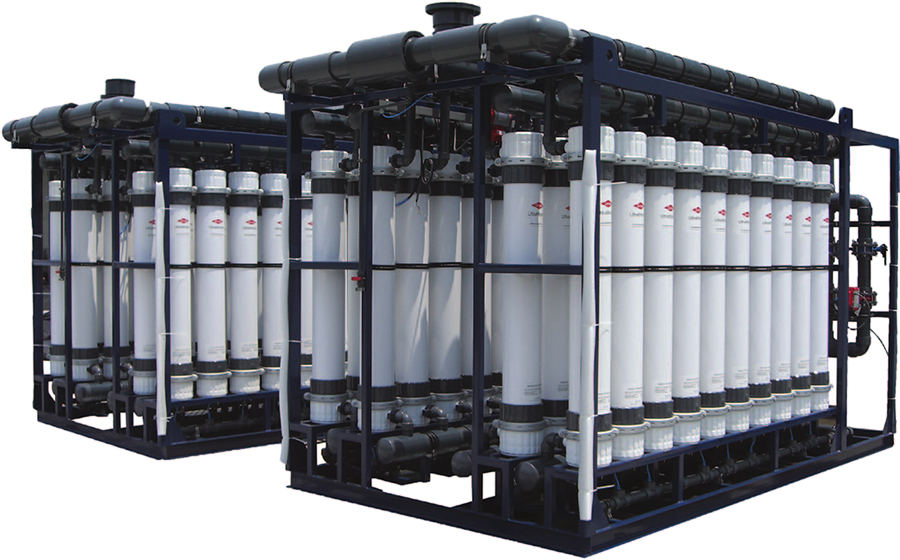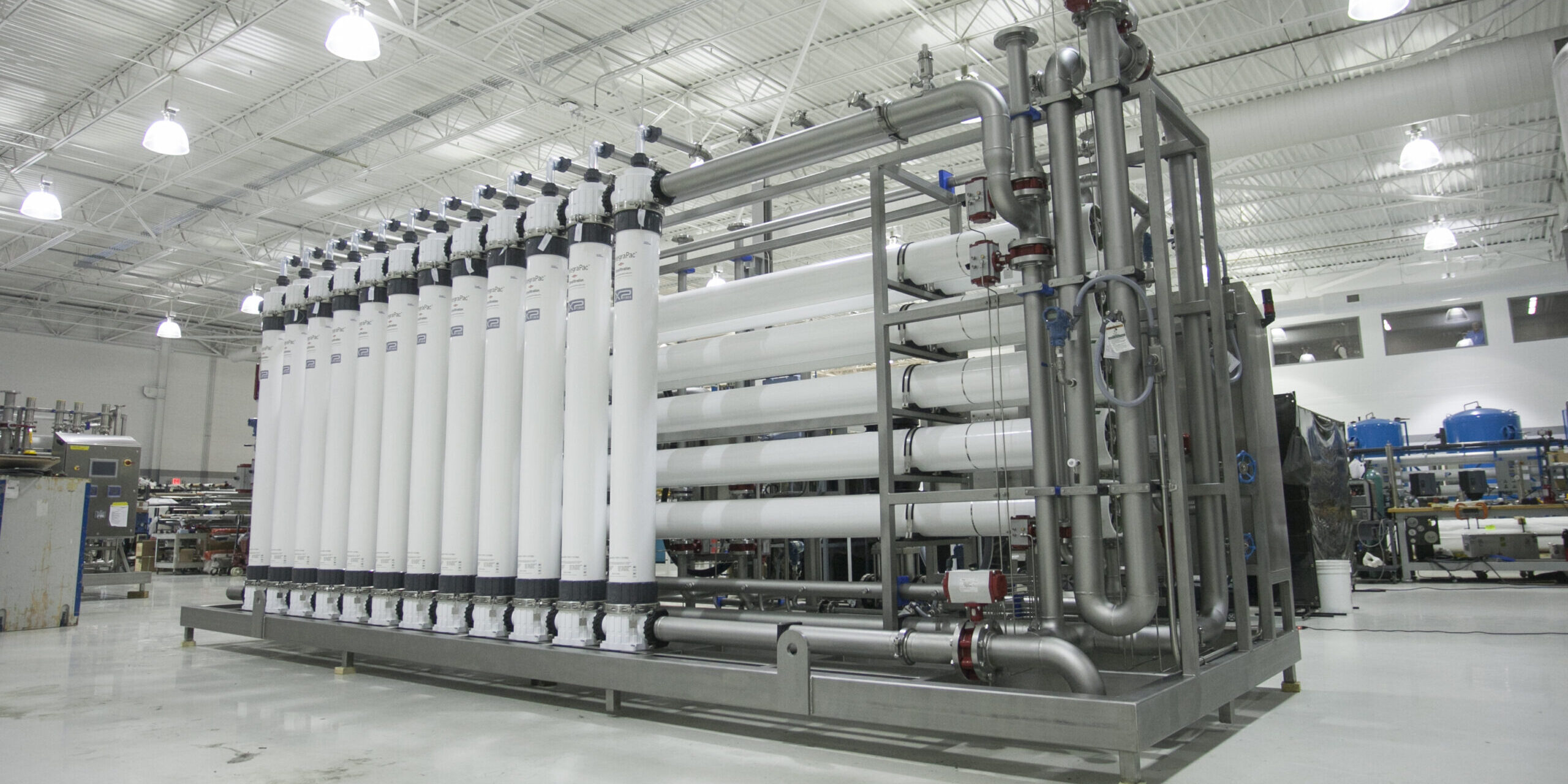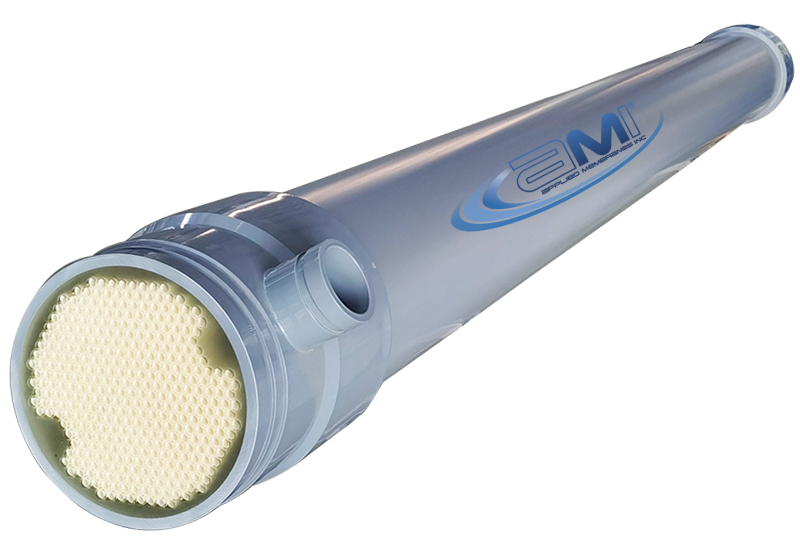
Ultra Filtration (UF)
Ultrafiltration (UF) is a membrane filtration process that uses hydrostatic pressure to force a liquid through a semi-permeable membrane. The pore size of the UF membrane is typically 103 – 106 Daltons, which is smaller than bacteria and viruses. This makes UF a very effective way to remove these contaminants from water, wastewater, and other fluids.
UF is used in a variety of applications, including:
- Water purification: UF can be used to remove bacteria, viruses, and other contaminants from drinking water, wastewater, and industrial water.
- Food and beverage processing: UF can be used to clarify juices, beers, and wines, and to concentrate proteins and other nutrients.
- Chemical and pharmaceutical manufacturing: UF can be used to recover and purify products, and to remove impurities from process streams.
- Wastewater treatment: UF can be used to remove suspended solids, bacteria, and viruses from wastewater, and to recover water for reuse.
- Blood dialysis: UF is used to remove toxins and waste products from the blood of patients with kidney failure.
UF is a versatile and effective membrane filtration process that can be used in a variety of applications. The specific application of UF will depend on the nature of the fluid to be treated and the desired outcome.


Here are some additional details about the applications of ultrafiltration:
- Water purification: UF can be used to remove bacteria, viruses, and other contaminants from drinking water, wastewater, and industrial water. This can help to improve the quality of the water and make it safe for human consumption or reuse.
- Food and beverage processing: UF can be used to clarify juices, beers, and wines, and to concentrate proteins and other nutrients. This can improve the taste and appearance of the products, and also make them more shelf-stable.
- Chemical and pharmaceutical manufacturing: UF can be used to recover and purify products, and to remove impurities from process streams. This can help to improve the quality of the products and make them more consistent.
- Wastewater treatment: UF can be used to remove suspended solids, bacteria, and viruses from wastewater. This can help to reduce the environmental impact of wastewater treatment, and also make it possible to recover water for reuse.
- Blood dialysis: UF is used to remove toxins and waste products from the blood of patients with kidney failure. This is a life-saving treatment that allows patients to live with kidney failure for many years.
Ultrafiltration is a rapidly growing technology with a wide range of applications. As the technology continues to develop, it is likely to be used in even more applications in the future.

